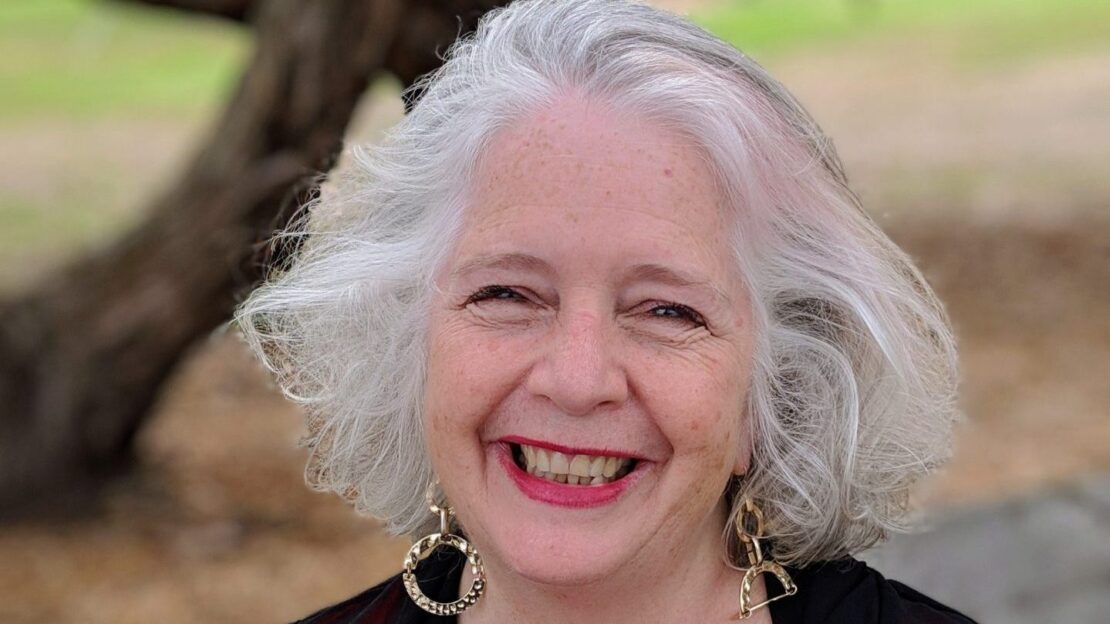As we celebrate the feast days of All Saints and All Souls, it is timely to consider the everyday goodness of the ordinary believer, those people whom Saint Paul called saints, the people made holy, set apart, by baptism into the faith. We pray for all those who have come before us, the communion of saints, who have found their eternal resting place with God. They are the known and unknown, God’s good people, the anointed and the anonymous.
As I consider this notion of saintliness, I will refer to Elizabeth Dreyer’s book, Earth Crammed with Heaven: A Spirituality of Everyday Life. I cannot believe the book is now 30 years old, yet still has a profound resonance. I was first struck by the title, a line selected from Elizabeth Barrett Browning’s poem and an appropriate allusion to exactly how I feel about the world as I go about an ordinary, everyday life. In this daily round, it is the glimpse of God, sometimes unbidden, sometimes sought, that colours my sense of the spiritual; it is the spirit all around me, in my laughing and longing, in my wins and woes, in my mornings and my evenings, in every breath I take.

Stain glass window at Our Lady of the Angels, Nuneaton, Warwickshire, UK
Elizabeth writes of falling in love with God as the originating experience of spirituality. In a profound way our intentionality is a key ingredient determining whether we notice God everywhere or only in church, or in suffering; or nowhere. It all depends on how we fashion our world. For me, the spiritual search is deliberate; it is an intentional orientation to find good and God in the everyday and to look at the world straight in the eye in both its glory and its grunge. I may well have a rose-coloured view of things, a personal disposition towards the optimistic, but even if this is so it does not diminish the quality or integrity of my search. I continue to look about me, keeping my eyes open to the human miracles, large and small, as they delight, surprise and sometimes make me reconsider my position on earthly matters.
I am trying to fashion my world to let in the sacred
Elizabeth writes, Spirituality must have something to do with the spirit, if not the Holy Spirit. The Spirit can produce great fruits when believers act for a common good. It confers a readiness to respond. With this receptive energy we can change our habits and live larger, expanding our agency. When the Spirit builds capacity, the soul can swell with goodness and charity, transforming the world and the way we are in it for ourselves and for others. The everyday saint, the person in the street, in the queue, behind the counter, in the lecture theatre or in the parish group may never be publicly beatified or canonised, but they leave soul traces on those they meet. 1 Corinthians 12:7 reminds us that The Holy Spirit is given to each of us in a special way. That is for the good of all. A few verses later we are reminded that we are one body, many parts: one community, many gifts.
A contemporary spirituality of the everyday does not bury its head in the sand. It faces up to the good – and bad – in the world. Elizabeth makes an explicit link with the spirituality of work where God can be revealed in the mundane and the repetitive. She asks that we wake up to the holiness of the office and the classroom and to see God revealed in all the tiny actions of the day. She acknowledges that our attitude to work can also colour our receptivity. For me, much of my time is spent at school and as such my personal endeavours are twinned with the school’s vision and mission, so in some ways there is the opportunity for spiritual synchronicity. My work life is not simply about a fortnightly salary.
Elizabeth suggests we see God in the present moment of our actions, the kairos moment, of spiritual opportunity and connection. She understands the demands of lay life and suggests that contemplation or prayer can be found in the haste and hubbub when one considers the geography of one’s existence. This means that each person must be aware of the terrain of their day; quiet oases, busy classrooms, canteen cacophony, a long bus journey home, the second shift, the needs of an ageing parent or unsettled teenager, the mind space afforded by the simple act of walking, the invitation to commune as day breaks or when the household is finally still late in the evening. Elizabeth speaks of our daily lives as the prime locus of the Holy. This is the reality of our domestic Church.
Elizabeth writes that grace is everywhere. It is a way of being for every baptized Christian whose belief has enabled them to join in the cosmic history of such grace. As we pray for those who have died, let us be reminded of the blessings of their lives on our own. We, too, can find that bit of everyday saintliness and know that in the next life we will join in that great belonging of those who have come before us.
By Ann Rennie
Published: 3 November 2023




Comments
Betty Rudin
Thank you Ann. Thought provoking and heartwarming
Add Comment